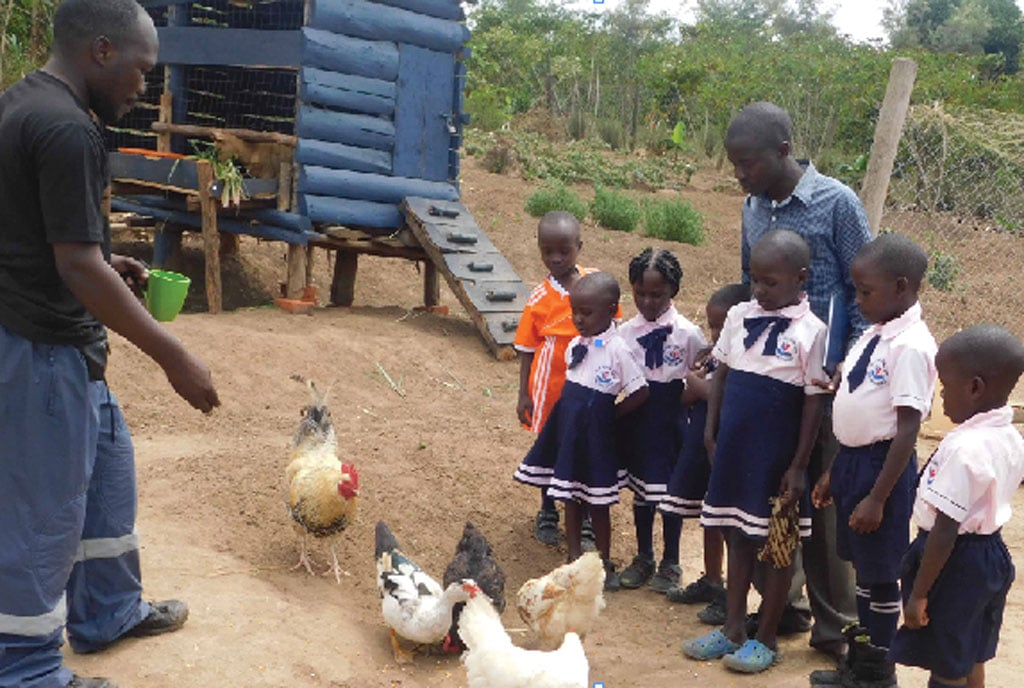Social, economic injustices to avoid in farming

Children should engage in agricultura work only under the care of an adult such as a teacher. PHOTO/MICHAEL J SSALI
What you need to know:
- Besides dispossessing thousands of small scale farmers of their land, large scale farms come along with inputs that are not conducive to environment and biodiversity protection.
As we strive to increase agricultural production and to reduce poverty we must ensure that we do not commit the same social and economic injustices that were committed hundreds of years ago by those who pioneered commercial farming on large pieces of land.
There is every indication in Uganda today that future crop production and livestock keeping will be carried out more on large scale farms.
Our coffee roadmap targets a five-fold increase in production of quality coffee from the current eight million bags to 20 bags by 2025, making Uganda one of the top global producers.
Increase production
The country targets to increase production area by 20 percent which means planting coffee in areas where the crop has not been grown before. The strategy also aims at expanding the middle stratum of commercial coffee farmers from the current 10 percent to 65 percent while reducing smallholders from 85 percent to 20 percent by 2040.
However we have to guard against large-scale farming that is based on social and economic injustices.
It should not be based on practices that promote soil degradation and environment destruction. It should not involve land grabbing, exploitation of the underprivileged, and human rights abuses.
Land evictions
Increasingly, nowadays, we see on our TV screens, footage of entire communities forced out of land that they have lived on all their lives growing crops and keeping livestock of their choice. They are evicted in most cases to create room for establishment of large farms by just a few rich individuals and companies commonly referred to as investors.
Evictions of that kind disrupt family relationships and local agricultural activities but, above all, they render more people homeless and jobless in their own country. Massive evictions also lead to internal migration and displacement as well as congestion in urban centres. An individual or a company takes over the land, in most cases, to practice mono-crop agriculture or large-scale livestock keeping where before a variety of farming activities were carried out.
Dangerous pesticides
We cannot fight poverty by abusing human rights. We cannot fight poverty by exploiting fellow Ugandans working on our farms by underpaying them and overworking them. We cannot be the kind of commercial farmers who employ underage children (child labour) because they are easy to cheat and to exploit.
John Wanyu, Programme Officer, biodiversity protection at Slow Food Uganda, is of the view that besides dispossessing thousands of small scale farmers of their land, large scale farms come along with inputs that are not conducive to environment and biodiversity protection.
“Often they use inputs such as pesticides, herbicides and acaricides that kill off edible insects such as white ants and crickets, medicinal plants, traditional vegetables and mushrooms that were part of the natural vegetation,” Wanyu says. “The chemicals sprayed over the crops destroy pollinators such as honey bees and snails and other organisms needed for soil nutrient formation.”
Why agro-ecology
He says his organisation, Slow Food, stands for good, clean and fair food which must be produced carefully without environment destruction caused by mindless application of dangerous chemicals on it. He also says food must be produced through practices that respect local cultures and promote local food production.
“If today’s small scale farmers are the main food producers, as is clearly evident, they only need more skilling and empowerment and not extermination,” Wanyu goes on to say.
“Coffee is certainly an important cash crop drunk like any other beverage but it is not really a food crop such as yams and beans which we can depend on during times of food scarcity.”
Safe food
He says food produced on grabbed land cannot be described as good, clean, and fair. He also says food produced with the use of agro-chemicals cannot be entirely safe for consumers. “Individual farmers growing the food crops of their choice in the way the crops have been grown by generations over time leads not only to food security but also to food sovereignty.
Large plantations owned by a few moneyed individuals rob people of the chance to eat the different food crops of their choice. This endangers a lot of our traditional food crops which are fast disappearing,” he says.
It is also true that large plantations come with heavy machines such as tractors and combine harvesters powered by diesel which sends off more carbon dioxide (a green gas) into the atmosphere.
Pesticides affect vegetable yields
Samuel Mwebe, Chairman of Nkokonjeru, Buikwe, Seed Farmers Group, presides over farmers collecting indigenous vegetables’ seeds and packaging them for sale to seed companies. He says mindless usage of herbicides has killed off a lot of indigenous vegetables.
“Many of them are now extinct. We chose to invest in this business after noticing that when farmers went to farmers’ shops they only found seeds for such crops as cabbages and tomatoes. Yet the farmers actually needed a variety of local vegetable seeds, including dodo, jjobyo, nakati, ntula, bbugga, and others eaten in other local communities. So we went into collecting the seeds, which we pack and sell to seed companies.
We totally discourage the use of chemical sprays on the vegetables because often the practice contaminates the vegetables and renders them a health threat. The consumer actually eats the leaves and it is not good to spray manufactured pesticides on the leaves. Yet the food that farmers produce must be completely safe.”
Strategy
The strategy also aims at expanding the middle stratum of commercial coffee farmers from the current 10 percent to 65 percent while reducing smallholders from 85 percent to 20 percent by 2040.




